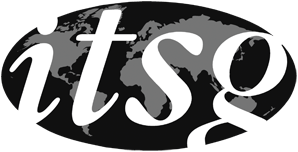Corporate Tax Guide: Macau

Members:
- Thomas Lee (TLP GROUP)
- P.Y. Ng (TLP GROUP)
|
1. Country
The information is valid for the entire country except where indicated. For example, in the case of Malaysia, Labuan is part of Malaysia but has a special tax regime, so this is noted. |
Macau – entire region. | ||||||||||||
|
The corporate tax rate shown is the typical corporate tax rate that a domestic corporation owned by non-resident persons would pay. The tax rate does not include withholding tax on dividends, but does include a distribution tax shown separately if applicable. Certain countries have a low corporate tax rate, but charge an additional tax when a dividend is distributed. Because this tax is paid by the corporation, and not deducted from the amount of the dividend itself, it is not a dividend withholding tax. As a result, it typically cannot be reduced by an international tax treaty. |
Profits tax (also known as complementary tax) is charged at 12%. There is exemption allowance of MOP 600,000 for assessment in 2016 as a tax relief measure. | ||||||||||||
|
The basis of taxation for a corporation will typically be one of:
|
Companies carrying out commercial or industrial activities in Macau are subject to profits tax. Companies incorporated in Macau are generally taxed on worldwide basis. Taxpayers are divided into Group A and Group B.
| ||||||||||||
|
Where non-resident corporation carries on business in a country, business profits may be subject to corporate tax. In addition, a branch profits tax may apply in lieu of dividend withholding tax. This branch profits tax applies to the after tax profits, typically at a fixed percentage. An international tax treaty may reduce the rate of branch profits tax, typically to the rate provided for dividend withholding. |
There is no branch profits tax. Branch office of non-resident corporation in Macau is subject to same profits tax treatment as described in Basis of Taxation. | ||||||||||||
|
The common forms of business entity are noted. In addition, the entities which are flow through entities for U.S. tax purposes are indicated. |
| ||||||||||||
|
Capital gains may be fully taxed, partially taxed or not at all. In certain countries, an exemption, called the participation exemption, will apply to exempt from tax a capital gain from disposition of a substantial holding of shares of a subsidiary. Where a participation exemption is applicable, it is noted together with a summary of the main conditions. |
Capital gains are taxed as revenue. | ||||||||||||
|
Certain countries allow group taxation, otherwise known as consolidated tax filing. Here the tax returns of a group of corporations in the country may be combined together, which can be useful. If group taxation is permitted, it is noted along with the main conditions. |
Not permitted. | ||||||||||||
|
Countries offer various kinds of special exemptions and incentives. Examples are a reduced tax rate, a tax holiday, a tax credit on the purchase of equipment, special accelerated deductions for deprecation, incentives for R&D, and various others. Here the major items are noted. |
Various tax incentives to investment projects that meet at least one of the following criteria as set out in the official website of Macao Trade and Investment Promotion Institute (Instituto de Promoção do Comércio e do Investimento de Macau) (“IPIM"), www.ipim.gov.mo/en/business-investment/investing-in-macao/incentives-to-investment/fiscal-incentives, are available by application:
| ||||||||||||
|
Many countries have thin capitalization rules which limit or deny the deduction of interest expense in certain circumstances. For example, if debt exceeds three times equity, a proportionate amount of interest expense may not be deductible. Limitations take various forms, restricting the interest expense deduction to a percentage of profit, deeming the debt to be equity and the interest to be a payment of dividends, and various other rules which may blend of these principles. Where a country has thin capitalization rules, they are briefly described. |
There is no thin capitalization rule. | ||||||||||||
|
Many countries have transfer pricing rules. They very often follow the OECD guidelines and the arms length principle. Some countries have specific rules which apply in certain cases. In addition, some countries allow for a selection of the most appropriate transfer pricing methodology in the circumstances, while other countries follow a hierarchy of methods, with the CUP method (comparable uncontrolled price) often ranking first. The transfer pricing rules are briefly explained. |
There is no specific transfer pricing rule. General principles of anti-avoidance are usually applicable. | ||||||||||||
|
11. CFC Rules
Many countries tax passive income earned in controlled foreign corporations (CFC’s) on an imputation basis while active income is not taxed. Such CFC rules are usually complex and vary significantly in what is considered passive income, and how foreign tax paid is taken into account. Some countries approach CFC rules on the basis of whether or not the foreign corporation is resident in a low tax jurisdiction or a tax haven. This may be done through a black list of countries. The general overview of CFC rules is described in simple terms. |
There is no CFC rule. | ||||||||||||
|
Profits repatriated by way of dividends from a subsidiary to a parent company are typically taxed in one of three ways:
|
There is no restriction on profit repatriation. A Macau company can claim deduction from taxable profits dividends distributed to its shareholders. Dividends received by shareholders are treated as income chargeable to profits tax. The Macau company is required to disclose detailed information of the recipient, including name and tax identification number in Macau (TIN). For non-resident recipient without a TIN, the DSF will request detailed information to determine whether the recipient carries on any business activities in Macau. In the case where the DSF considers that there is insufficient information, it may disallow the claim of deduction by the Macau company. Alternatively, the Macau company may withhold profits tax at 12% on the dividends paid to the non-resident recipient in order to secure a deduction | ||||||||||||
|
Most countries allow a foreign tax credit based on a formula, typically net foreign income over the net income times taxes payable. This limits the foreign tax credit to roughly the domestic tax otherwise applicable to the foreign income. There are numerous variations and technical rules in the details of foreign tax credit calculations. Where a foreign tax credit is allowed, the general principles are described. |
There is no provision for foreign tax credit in the Macau Complementary Tax Law. Foreign tax credit is only available under the relevant provisions of the comprehensive tax arrangements/agreements that Macau has entered into with other tax jurisdictions. | ||||||||||||
|
14. Losses
Losses typically can be carried forwards for a period of years, and sometimes can be carried back. Losses may be segregated into capital losses and non capital losses. |
Tax loss carryback is not permitted. The treatments of tax loss carryforward for taxpayers under Group A and Group B are different.
| ||||||||||||
|
It is not practical to list all of the tax treaties which a country has in a simple guide like this. Accordingly, a link is provided in each case to the tax treaties. Some countries have entered into Tax Information Exchange Agreements (TIEA). Treaties are more and more containing provisions that limit benefits (LOB provisions). |
Macau has entered into Comprehensive Double Taxation Agreements (DTAs) with the following 5 countries and Tax Information Exchange Agreements (TIEAs) with 15 countries.
| ||||||||||||
|
Withholding tax rates vary considerably from treaty to treaty, and countries may have domestic exemptions applicable in certain circumstances (for example copyright royalties, interest paid to arm’s length persons, etc.). A table shows the typical rates but cannot adequately summarize all of the details. The applicable treaty should be consulted. |
Macau does not levy withholding tax. Treatments of payments of royalties, interest or service charges made to tax residents or non-resident persons are similar to those explained in 12 “Profit Repatriation" above. | ||||||||||||
|
17. Taxation Year
Some countries allow for the selection of year-end while other countries specify a particular year-end which all business entities must have. Normally the taxation year cannot exceed 12 months. Where it can exceed 12 months, this is noted. |
From 1 January to 31 December. | ||||||||||||
|
This is the due date for filing a tax return. Where extensions are available, this is noted. |
The tax filing periods for taxpayers under Group A and Group B of a taxation year are:
| ||||||||||||
|
19. Tax Instalments
The typical tax instalment requirements are noted. |
Tax more than MOP 3,000 may be payable in two equal instalments usually in September and November. Tax no more than MOP 3,000 will usually be payable in one lump sum in September. | ||||||||||||
|
20. Payment of Tax
This is the date when the corporate tax owing for the year must be paid. It may be different from the tax return filing due date. |
The due dates for payment of tax will normally be end of September for the 1st instalment and end of November for the 2nd instalment. | ||||||||||||
|
This is the period after which the tax department cannot in normal circumstances reassess a taxation year. It is sometimes referenced to the end of the taxation year and sometimes to the date of the first assessment of that taxation year. |
The statute of limitations is 5 years for both Group A and Group B taxpayers. | ||||||||||||
|
If a country has exchange controls, this is noted, together with the main requirements. |
There is no foreign exchange control. | ||||||||||||
|
23. VAT
A VAT tax system typically provides that the supply of goods and services is classified as taxable, tax exempt, or zero rated. Where a business is engaged in an activity which is taxable, it must charge VAT on its revenue, and can claim a refund of VAT on its expenditures. Where the activity is exempt, it does not charge VAT on its revenue, and cannot claim back VAT paid. Where the entity is engaged in activities which are zero rated (typically agriculture, food services and exports), then it can claim back VAT which it has paid on its expenditures, and does not charge VAT on its revenue. If a country has a typical VAT system, this is noted. If a country has no VAT system but a sales tax system, this is indicated. Some countries may have a mixture, and taxes may apply at different levels (federal and state for example). |
There is no VAT. | ||||||||||||
|
Stamp duty, or land transfer tax, can apply on such things as the transfer of shares, land, or the issuance of bonds or debentures. This is described together with the applicable rates. |
Stamp duty is chargeable on various types of instruments or documents for business transactions including property conveyance, transfer of shares and payment slips of certain taxes. The stamp duty chargeable on transfer of immovable property and shares in Macau companies is summarized below:
| ||||||||||||
|
25. Capital Tax
If capital tax is payable, this is described. Capital tax may apply in specialized industries, such as banking and insurance, even if a country does not generally apply a capital tax to corporations. |
There is no capital tax. | ||||||||||||
|
26. Other Taxes
Where significant, other taxes are noted. |
Property tax
| ||||||||||||
|
Anti-Avoidance Rules take many forms, the most common ones are a general anti-avoidance rule, treaty shopping limitations, the requirement for economic substance (or a business purpose in carrying out transaction) and specific anti-avoidance rules for particular purposes. A very brief overview of the anti-avoidance rules is described. |
There is no specific anti-avoidance rule. General principles of anti-avoidance are usually applicable. | ||||||||||||
|
Where a non-resident person holds shares of a corporation established in the country listed, the capital gain which results may be taxable or not taxable depending on the circumstances and, possibly, the existences of an international tax treaty. The general rules are noted. |
The gain on sale of shares in a Macau company is generally chargeable to profits tax at 12%. | ||||||||||||
|
Where a corporation is acquired through the purchase of shares, sometimes a step up is allowed so that the cost of its assets can be revalued. The main rules are briefly summarized. |
There is no specific rule on step up on acquisition. | ||||||||||||
|
30. Use of Rulings
In some countries, rulings are commonly used (and sometimes even required). In other countries the system is either unavailable or not commonly used except in special circumstances. |
There is currently no advance ruling system in Macau. | ||||||||||||
|
31. Other
Other important aspects of the tax system are noted. |
N/A |

 Login
Login
















































